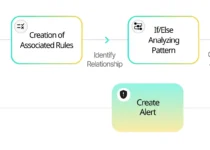Decoding Marketing Attribution Modeling: Strategies for Data-Driven Decision Making
Decoding Marketing Attribution Modeling: Strategies for Data-Driven Decision Making
Introduction: Introduce the concept of marketing attribution modeling and its significance in digital marketing. Highlight the challenges marketers face in accurately measuring the effectiveness of their marketing efforts and the role of attribution modeling in addressing these challenges.
1. Understanding Marketing Attribution: Define marketing attribution and explain its importance in determining the impact of various marketing channels and touchpoints on customer conversions. Discuss the different types of attribution models, including:
- First-touch attribution
- Last-touch attribution
- Multi-touch attribution
- Time-decay attribution
Algorithmic attribution Artificial Intelligence In Digital Marketinghttps://www.digistore24.com/redir/530242/lifetomorrow24/CAMPAIGNKEY
2. Choosing the Right Attribution Model: Explore factors to consider when selecting an attribution model for your marketing campaigns. Discuss the strengths and limitations of different attribution models and how they align with your marketing goals, customer journey, and business objectives.
3. Implementing Attribution Modeling Techniques: Provide practical tips and best practices for implementing attribution modeling techniques in your digital marketing strategy. This may include:
- Collecting and integrating data from various marketing channels and touchpoints.
- Utilizing analytics tools and platforms to track and analyze customer interactions across different channels.
- Experimenting with different attribution models to understand their impact on marketing performance and ROI.
- Incorporating machine learning and AI algorithms to enhance attribution modeling accuracy and predictive capabilities.
4. Interpreting Attribution Insights: Discuss how to interpret attribution insights and leverage them to optimize marketing performance. This may involve:
- Identifying high-performing marketing channels and reallocating budget accordingly.
- Understanding the influence of different touchpoints on the customer journey and tailoring messaging and targeting strategies accordingly.
Identifying areas for improvement and testing hypotheses to optimize marketing effectiveness. Artificial Intelligence In Digital Marketinghttps://www.digistore24.com/redir/530242/lifetomorrow24/CAMPAIGNKEY
5. Overcoming Challenges and Limitations: Acknowledge common challenges and limitations associated with marketing attribution modeling, such as:
- Data fragmentation and siloed data sources.
- Cross-device and cross-platform tracking issues.
- Attribution modeling biases and inaccuracies.
- Stakeholder buy-in and organizational alignment.
6. Future Trends and Developments: Explore emerging trends and developments in marketing attribution modeling, such as:
- Advances in machine learning and AI for predictive attribution modeling.
- Integration of offline and online attribution data for a holistic view of the customer journey.
- Evolution of privacy regulations and its implications for data collection and attribution modeling.
Conclusion: Summarize the key insights and takeaways from the article, emphasizing the importance of marketing attribution modeling in driving data-driven decision-making and optimizing marketing performance. Encourage readers to embrace attribution modeling as a valuable tool for understanding customer behavior and maximizing marketing ROI. Artificial Intelligence In Digital Marketinghttps://www.digistore24.com/redir/530242/lifetomorrow24/CAMPAIGNKEY


